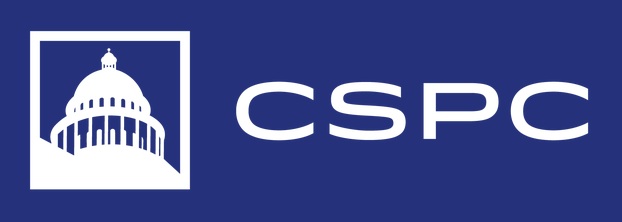2017-2018 FELLOWS REVIEW
At a time when our politics are so divided, I am comforted to know that CSPC is training a new generation of leaders to engage in civil discussion and principled leadership through the Presidential Fellow program. The program is designed to teach students about good governance and effective leadership through the study of the Presidency and Congress. I am consistently impressed with the caliber of students that participate in our program. They give me hope that a brighter era of politics lies ahead.
In the pages that follow, you will find a selection of the 2017-2018 class of Fellows’ original research papers. Participants spend their Fellowship year examining today’s most pressing policy issues as well as historic events that provide an important lens for current trends. In addition, Fellows attend two leadership conferences over the course of their Fellowship year where they engage with academics, high-level government officials, and policy experts on today’s political challenges and innovative solutions. We hope these experiences will inspire them to pursue careers in public service.
The fourteen papers chosen for publication represent the highest caliber of rigorous, academic work. They range in subject matter from shifting international alliances to the war on drugs. Each year, CSPC offers special recognition to Fellows who have presented extraordinary research in five categories:
The David M. Abshire Award for Most Outstanding Paper by an International Fellow was awarded to Natalie Boychuk of the University of Toronto for her review of U.S. foreign policy responses to international secessionist movements (“Should I Stay or Should I Go? United States Foreign Policy and Support for Secessionist Movements Abroad”).
The Robert A. Kilmarx Award for the Best Military, Intelligence, or National Security Strategic Analysis was presented to Evelyn Burch from Angelo State University for her examination of great power competition between the United States and China (“Projecting Power: China and the United States’ Struggle for Dominance in the Era of Xi and Trump”).
Jason Sell from Emory University was recognized with the Donald B. Marron Award for the Best Historical Analysis for his research on the role presidents have played over time in combatting drug use (“Constructing the Drug War: Analysis of Presidential Leadership in Shaping Policy and Public Opinion”).
Matthew Schneider from Georgetown University won the James R. Moffett Award for the Most Original Paper on the Modern Presidency or Congress for his review on the power of Congress and the President to steer macroeconomic policy (“Do Political Inefficiencies Weaken the President and Congress’s Ability to Direct Macroeconomic Policy?”).
Finally, University of Southern California student Jamie Kwong was awarded the Richard H. Solomon Award for the Most Original Paper on Foreign Policy or Diplomacy for her research on U.S. treatment of nuclear weapons programs in China and North Korea (“Cold War and Post-ii Cold War Rogues: U.S. Foreign Policy Responses to China’s and North Korea’s Nuclear Weapons Programs”).
We are immensely proud of the work of these Fellows and all of their colleagues who conducted outstanding research. We are grateful to Carlota Cumella, Stephanie Lizzo, Sarah Weintraub, Crystal Staebell, and Madison Howell for their work editing the 2017-2018 Fellows Review under the guidance of Erica Ngoenha, Director of the Presidential Fellows Program.
We hope you enjoy reading this anthology and that you are as inspired as we are by our next generation of leaders.
Glenn C. Nye III
President & CEO
Center for the Study of the Presidency and Congress

![Fellows Review 2017-2018 Cover[1041].png](https://images.squarespace-cdn.com/content/v1/5cb0a1b1d86cc932778ab82b/1566417503263-G1OSDJFUDVKNGG99C5L7/Fellows+Review+2017-2018+Cover%5B1041%5D.png)